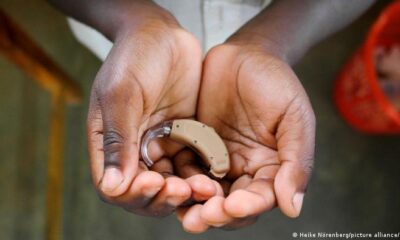KIDS are more than twice as likely to leave primary school obese if they live in deprived areas, NHS stats reveal.
It comes as experts warn the cost-of-living crisis threatens to plunge more children into poverty and ill health.

Didcott-based GP, Dr Rachel Ward told The Sun around 80 per cent of obese kids will grow up to be obese adults, warning of âa huge health crisis in years to comeâ.
âObesity is one of the biggest health risk factors that we face in the UK,â she warned.
âIt increases your risk of diabetes, cancer, heart disease, stroke and mobility issues.
“Thatâs why itâs critical to address obesity in children.â
Dr Helen Stewart, officer for health improvement at the Royal College of Paediatrics and Child Health, echoed the grim warning.
“Today’s data reaffirms the intrinsic link between obesity and poverty,” she said.
“We find ourselves in a situation where our most vulnerable children are twice as likely to become obese, and subsequently be at higher risk of chronic illnesses, mental health issues and even a shorter life span.
“It’s inherently wrong that these children can be placed at such a disadvantage before even leaving primary school. These rampant health inequalities can no longer be ignored.”
Almost one in three (31 per cent) year 6 pupils in deprived areas are obese – more than double the 13.5 per cent in the least deprived areas, the NHS Digital report shows.
Sandwell in the West Midlands had the highest obesity levels in reception class and year 6 – with 14.9 per cent and 33.7 per cent of pupils, respectively, deemed obese.
In contrast, the areas with the lowest levels were Richmond upon Thames in London, where 5.4 per cent of reception-aged kids live with obesity.
And for year 6 pupils the lowest levels were seen in Surrey, in the South East, where 12.1 per cent were obese at 10 or 11.
The overall data shows there has been a drop in overall rates of childhood obesity in the last year, compared to high levels during the Covid pandemic.
But figures for 2021/22 remain higher than pre-pandemic levels.
COST-OF-LIVING THREAT
Dr Ward warned the cost-of-living crisis is likely to only make things worse.
âIt will certainly have a very negative impact on childrenâs health – we are already seeing this,â she added.
âWhen parents are struggling to heat homes, clothe their children and put food on the table, it has a very negative impact on both the physical and mental health of children.â
In total, 23.4 per cent of all kids in year 6 are obese in England, with 5.8 per cent deemed severely obese, the NHS Digital stats show.
A further 14.3 per cent are overweight, meaning almost one in 10 children aged 10 and 11 are overweight or obese.
When it comes to reception class, 10.1 per cent of all four and five year olds are deemed obese, of whom 2.9 per cent are severely obese.
Another 12.1 per cent are overweight, meaning more than one in five of all children in reception are overweight or obese.
‘COMPLEX ISSUE’
Offering advice to parents, Dr Ward said the key thing is âembedding good habits of healthy eating and regular exerciseâ when children are young.
But she acknowledged it is a “complex issue” – and one that needs to be tackled with support and education in many different areas.
“There is no point teaching people how to cook healthy meals and batch cook if they have no cooking equipment and can’t afford the energy to cook food,” Dr Ward said.
“Similarly, increasing sports activities for children will only work if we understand what barriers are preventing them from attending.
“We need to work hard at this problem as it’s going to lead to a huge health crisis in years to come.”
DRASTIC ACTION NEEDED
Dr Stewart said the RCPCH is calling on the new Health Secretary, Steve Barclay, to reinforce the preventative anti-obesity policies that were recently rumoured to be at risk of being scrapped under Liz Truss’s Government.
“We also ask that there be a renewed focus in tackling child poverty and deprivation,” she added.
“Concrete action, such as expanding free school meals, increased financial support for families struggling with rising inflation and publishing the Health Disparities White Paper can make all the difference here.
“The link could not be clearer, there is no tackling obesity without tackling poverty too.”
Tam Fry, chairman of the National Obesity Forum, blamed successive governments for failing to tackle the childhood obesity crisis.
“It is shocking that overcrowded areas in the Midlands have nearly three times more obese children than towns in the leafy South,” he said.
“It is also appalling that the re-instated Health Secretary, Steve Barclay, has not uttered a word on how he plans to tackle obesity in general or the plight of children living in social deprivation.
“In 2018, the outgoing chief medical officer, Dame Sally Davies, sent Downing Street a comprehensive set of measures specifically to help achieve Jeremy Hunt’s stated ambition of halving childhood obesity by 2030.
“The onus is on the Government rather than parents to fight obesity, though of course, the latter will have the responsibility of ensuring their children are raised healthily.”
For parents seeking more advice, Dr Ward advises speaking to health visitors, school nurses, your GP or the NHS website.

Must See
-


Tips
/ 11 months agoTen reasons for Amsterdam
Amsterdam mainly celebrates April 27th in Orange. The king’s birthday is traditionally celebrated with a...
-


Tips
/ 11 months agoTen travel tips for South Korea
A country between high-tech and tradition. A visit to East Asian South Korea is worthwhile...
-


Tips
/ 11 months agoTen reasons for Mecklenburg-West Pomerania
No other federal state has as much water as Mecklenburg-Western Pomerania. Baltic Sea waves wash...













